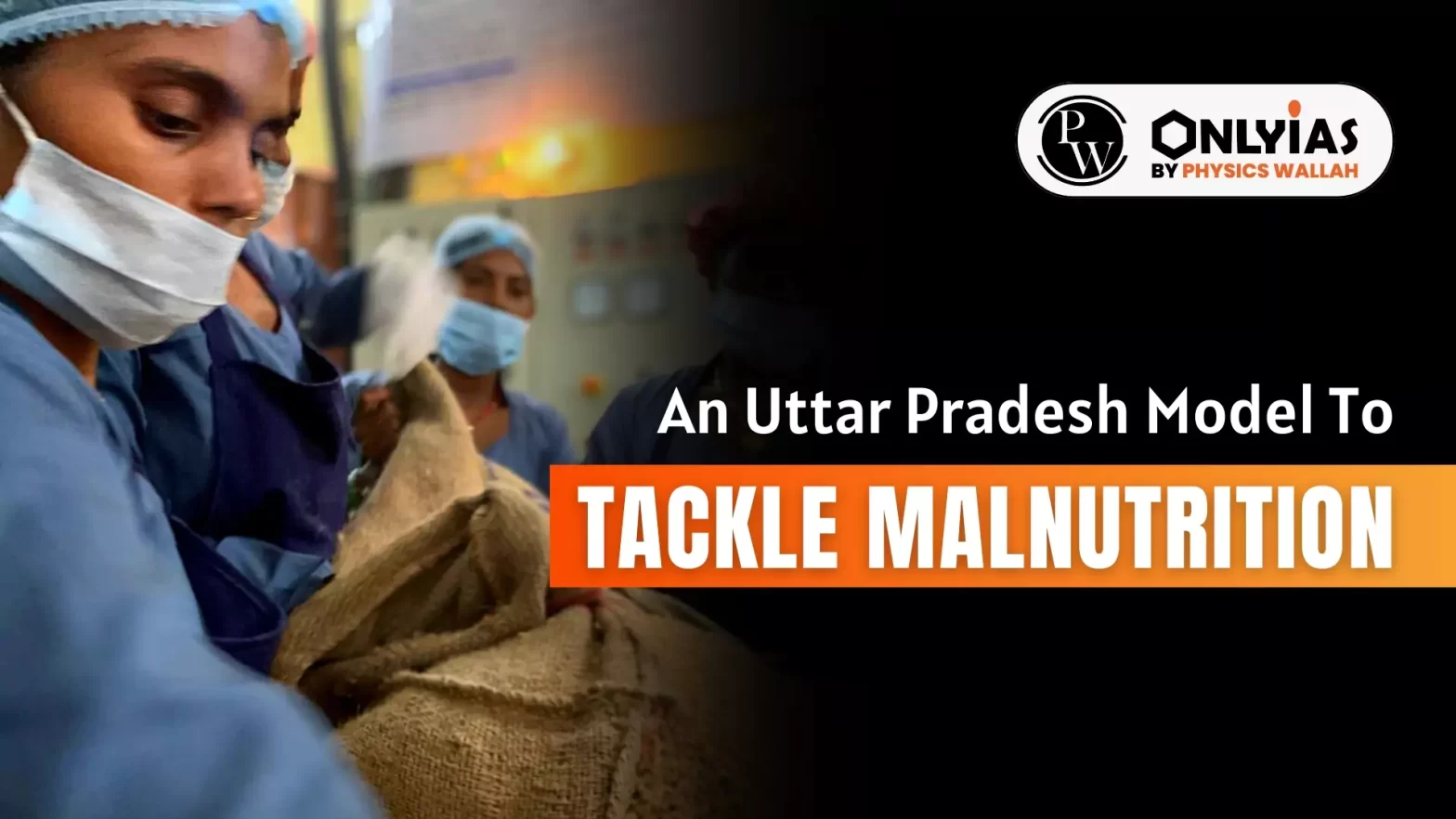![]() 6 Feb 2024
6 Feb 2024

This editorial is based on the news “An Uttar Pradesh model to tackle malnutrition” which was published in the Hindu. Uttar Pradesh has become a remarkable example of the importance of women’s empowerment in tackling malnutrition by supporting community-based micro enterprises led by self-help groups.
| Relevancy for Prelims: Poverty & Malnutrition In India, Integrated Child Development Services Scheme, Food Security, and State Of Food And Agriculture Report 2023.
Relevancy for Mains: UP Malnutrition Programme: Role and Significance. |
|---|
| Must Read | |
| NCERT Notes For UPSC | UPSC Daily Current Affairs |
| UPSC Blogs | UPSC Daily Editorials |
| Daily Current Affairs Quiz | Daily Main Answer Writing |
| UPSC Mains Previous Year Papers | UPSC Test Series 2024 |

<div class="new-fform">
</div>